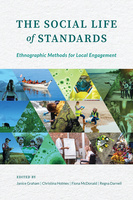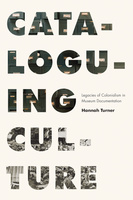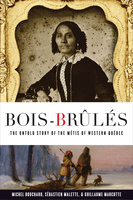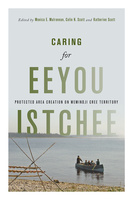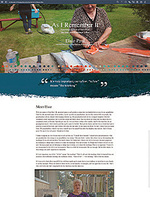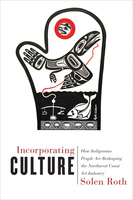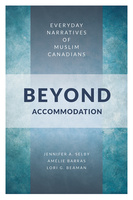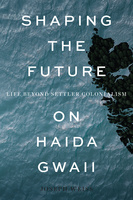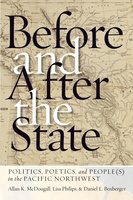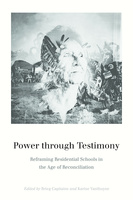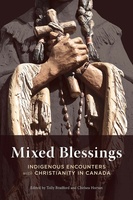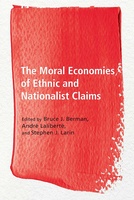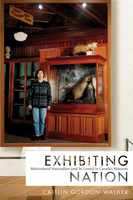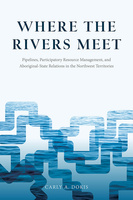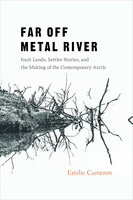The Social Life of Standards
Ethnographic Methods for Local Engagement
The Social Life of Standards reveals how political and technical tools for organizing society are developed, applied, subverted, contested, and reassembled as local communities interact with standards created by external forces.
Cataloguing Culture
Legacies of Colonialism in Museum Documentation
In examining how the technologies of museum bureaucracy – the ledger book, the card catalogue, the database – operate through a colonial lens, Cataloguing Culture shines a light on access to and the return of Indigenous cultural heritage.
Bois-Brûlés
The Untold Story of the Métis of Western Québec
Bois-Brûlés shatters the prevailing orthodoxy that Métis communities are found solely in western Canada by demonstrating that a distinct community emerged in the fur trade frontier of Quebec in the early nineteenth century and persists to this day.
Caring for Eeyou Istchee
Protected Area Creation on Wemindji Cree Territory
In Caring for Eeyou Istchee, Indigenous and non-Indigenous partners reveal how protected area creation presents a powerful vehicle for Indigenous stewardship, biological conservation, and cultural heritage protection.
As I Remember It
Teachings (Ɂəms tɑɁɑw) from the Life of a Sliammon Elder
Meet Elder Elsie Paul and discover her stories, family history, and teachings – ʔəms tɑʔɑw – in a multimedia, online book that captures the wit and wisdom of her storytelling.
Incorporating Culture
How Indigenous People Are Reshaping the Northwest Coast Art Industry
Incorporating Culture examines what happens when Indigenous people assert control over the commercialization of their art by instilling the market with their communities’ values.
Beyond Accommodation
Everyday Narratives of Muslim Canadians
By showing how Muslim Canadians successfully navigate and negotiate their religiosity in their everyday lives, Beyond Accommodation critiques the reasonable accommodation framework and proposes an alternative picture of how religious difference is worked out.
Shaping the Future on Haida Gwaii
Life beyond Settler Colonialism
Countering colonial ideas about Indigenous peoples being frozen in time and without a future, this provocative book explores the ways in which members of the Haida Nation are shaping myriad possible futures to address the dilemmas that come with life under settler colonialism.
Before and After the State
Politics, Poetics, and People(s) in the Pacific Northwest
Documenting the profound impact of state formation on individuals and communities in the Pacific Northwest of the nineteenth century, Before and After the State reveals how national narratives and constructed identities were used in the service of nation building.
Power through Testimony
Reframing Residential Schools in the Age of Reconciliation
This groundbreaking volume assesses the power of residential school survivors to reframe – through memory, story, and testimony – how Canadians think about residential schools and their long-term impact on individuals, families, communities, and the nation.
Mixed Blessings
Indigenous Encounters with Christianity in Canada
This diverse and cutting-edge collection offers fresh insights into the complex and charged subject of Indigenous encounters with Christianity in Canada from the 1600s to the present day.
The Moral Economies of Ethnic and Nationalist Claims
Leading scholars investigate the complex role that competing moral economies play in ethnic and nationalist conflicts.
Exhibiting Nation
Multicultural Nationalism (and Its Limits) in Canada’s Museums
This exploration of museums as sites for representing and defining national identity encourages us to reconsider the idea of the multicultural nation.
Where the Rivers Meet
Pipelines, Participatory Resource Management, and Aboriginal-State Relations in the Northwest Territories
An examination of Sahtu Dene participation in the assessment of the Mackenzie Gas pipeline and other resource extraction projects, this book provides an in-depth account of the workings and effects of participatory environmental assessment in the Canadian North and its implications for the legitimization of resource co-management.
Far Off Metal River
Inuit Lands, Settler Stories, and the Making of the Contemporary Arctic
Drawing on the story of the 1771 Bloody Falls massacre, human geographer Emilie Cameron explores the relationship between stories and colonialism, challenging readers to examine their perceptions of the contemporary Arctic and its peoples.

